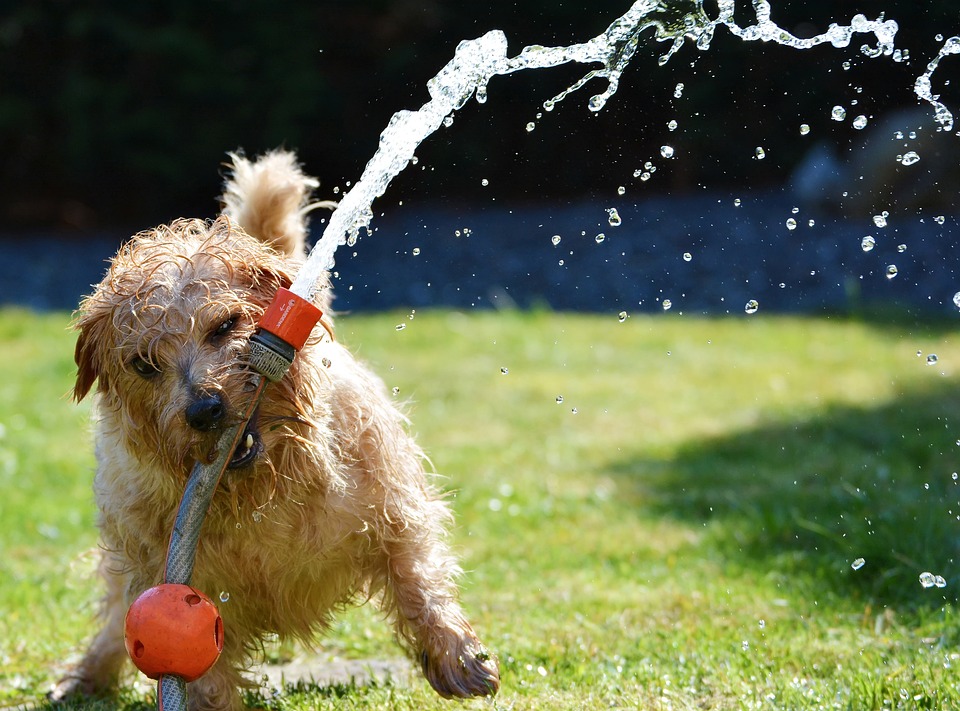Heading: Managing Excessive Digging in Your Yard: Understanding and Addressing Dog Behavior
Sub-heading: Introduction
Dogs are known for their playful and curious nature, which sometimes leads to excessive digging in the yard. While digging can be a normal behavior for dogs, it can become problematic if it damages your yard or poses a safety risk. In this article, we will explore the reasons behind excessive digging and provide practical tips on how to manage and redirect this behavior effectively.
Sub-heading: Understanding the Reasons Behind Excessive Digging
Dogs dig for various reasons, and it is essential to understand the underlying causes before addressing the behavior. Here are some common reasons behind excessive digging:
1. Boredom and Lack of Stimulation: Dogs that lack mental and physical stimulation may resort to digging as a way to alleviate boredom.
2. Natural Instincts: Some breeds have a natural instinct to dig, such as terriers, dachshunds, and hunting dogs. This behavior may be deeply ingrained and harder to control.
3. Escape Attempts: Dogs may dig under fences or gates in an attempt to escape or explore beyond their boundaries.
4. Seeking Comfort: Dogs might dig to create a cool spot in hot weather or to create a cozy den-like space.
5. Anxiety or Stress: Dogs experiencing anxiety or stress may resort to digging as a coping mechanism.
Sub-heading: Effective Techniques to Manage Excessive Digging
Now that we understand the reasons behind excessive digging, let’s explore some techniques to manage and redirect this behavior:
1. Provide Sufficient Exercise and Mental Stimulation: Ensuring your dog gets enough physical exercise and mental stimulation can help reduce boredom and prevent excessive digging. Engage in daily walks, play fetch, provide puzzle toys, and consider obedience training sessions.
2. Designate a Digging Area: Create a specific area in your yard where it is acceptable for your dog to dig. Use a sandbox or designated digging pit and bury toys or treats to encourage your dog’s interest in that area. Praise and reward your dog when they dig in the appropriate spot.
3. Supervision and Deterrents: Keep a close eye on your dog when they are in the yard. Correct them with a firm “no” if they start digging in inappropriate areas. You can also use deterrents such as motion-activated sprinklers or natural repellents to discourage digging.
4. Provide Adequate Shelter and Comfort: Ensure your dog has access to a comfortable shelter and bedding to prevent them from digging to create their own spot. Provide shade and cool areas during hot weather.
5. Fence Reinforcement: If your dog is attempting to escape by digging under fences or gates, reinforce the bottom of the fence with chicken wire or extend the fence underground to deter digging.
Sub-heading: Frequently Asked Questions (FAQs)
Here are some common questions dog owners have about managing excessive digging:
1. Can I punish my dog for digging inappropriately?
Punishment is not recommended as it may confuse or frighten your dog. Instead, redirect their behavior to an appropriate digging area and reward them when they use it.
2. Will neutering/spaying my dog stop excessive digging?
Neutering or spaying your dog may help reduce certain behaviors, including roaming and territorial digging, but it is not a guaranteed solution for all dogs.
3. Are there any professional techniques or tools to control excessive digging?
Consulting with a professional dog trainer or behaviorist can provide personalized techniques and strategies to manage excessive digging. Some trainers may recommend using behavior modification tools like remote training collars or positive reinforcement techniques.
4. What if my dog’s excessive digging persists despite my efforts?
Persistent digging may indicate an underlying behavioral issue or a need for additional stimulation. In such cases, consulting a veterinarian or a certified animal behaviorist is advisable to assess and address the root cause.
Remember, patience and consistent training are key when managing excessive digging in your yard. By understanding your dog’s needs and redirecting their behavior appropriately, you can create a harmonious environment for both your pet and your yard.









